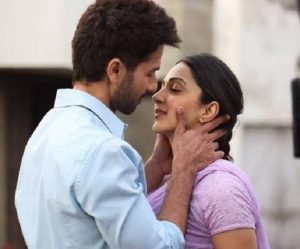Lockdowns alone won’t eliminate coronavirus: WHO to India
HIGHLIGHTS
- WHO praises India’s early-stage lockdown
- But also points to other necessary measures
- Warns against cycles of lockdowns and outbreaks
The World Health Organisation (WHO) has commended yet cautioned India over its response to the coronavirus pandemic, warning it of a possible resurgence of cases after the current lockdown in the absence of other important measures.
Answering India Today TV’s questions during an interaction with journalists in Geneva (Switzerland), WHO director-general Tedros Adhanom Ghebreyesus praised India’s decision to enforce the lockdown at a very early stage.
“India has the capacity and it’s very important and good to see that India is taking early measures. This will help suppress and control it before it gets serious,” he said.
It’s important to “to cut it from the bud when you only have 606 cases,” he said.
FIND, TREAT, ISOLATE
Asked if India risks seeing a second or third wave of infections even after a successful lockdown, WHO executive director Mike Ryan pointed to the importance of other measures.
“Without implementing the necessary measures, without putting in place those protections, it’s going to be very difficult for the country to exit [from the lockdown]. And when they do, they have a resurgence and I think that’s the challenge now,” he said.
“We have very little window of opportunity.”
– Mike Ryan, WHO
“India has incredible capacities, but it must do things. You must have a system to find cases, you must test, you must expand your capacity to treat and isolate, you must be able to quarantine your contacts. And if those things are put in place — and I know they are being put in place — but if we can accelerate that…” he told India Today TV.

WHO task force representatives observed that that India is a vast country and can’t be taken as a single entity from an epidemiological perspective.
Mike Ryan cited the example of systemic measures taken previously by India.
“India got rid of polio, by breaking it down to the village level. If India does the same thing district by district, puts in place the needed measures of surveillance and healthcare — and does that systematically — then there is a way out, there is a transition from lockdowns”.
FOLLOWING OTHER SUCCESS MODELS
Responding to India Today TV’s questions, Maria Van Kerkhove, the WHO’s technical lead on Covid-19, also cautioned India against cycles of outbreaks.
“What we don’t want is to get into a situation where you have a lockdown and then you lift it and then you have a resurgence, then you have a lockdown, and you have this endless cycle.”
Van Kerkhove said it’s important to look at the example of other successful nations and that India’s response doesn’t necessarily have to be uniform across the whole country.
Citing the examples of China and Singapore, she said: “In China, in different parts of the country, they applied different intensities and levels of these measures. In Singapore, they took different measures where they didn’t have to close their schools.”
WHO representatives have appreciated and thanked the Indian public for making difficult efforts in the global fight against the coronavirus pandemic.
Also, read Kanika Kapoor deleted her post amid Coronavirus Lockdown, giving information about her illness.



Average Rating